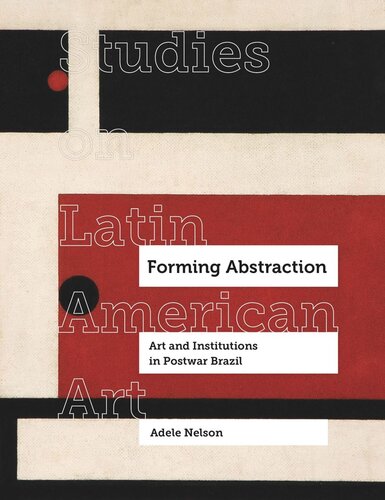

Most ebook files are in PDF format, so you can easily read them using various software such as Foxit Reader or directly on the Google Chrome browser.
Some ebook files are released by publishers in other formats such as .awz, .mobi, .epub, .fb2, etc. You may need to install specific software to read these formats on mobile/PC, such as Calibre.
Please read the tutorial at this link: https://ebookbell.com/faq
We offer FREE conversion to the popular formats you request; however, this may take some time. Therefore, right after payment, please email us, and we will try to provide the service as quickly as possible.
For some exceptional file formats or broken links (if any), please refrain from opening any disputes. Instead, email us first, and we will try to assist within a maximum of 6 hours.
EbookBell Team

0.0
0 reviewsArt produced outside hegemonic centers is often seen as a form of derivation or relegated to a provisional status. Forming Abstraction turns this narrative on its head. In the first book-length study of Brazilian art and culture following World War II, Adele Nelson highlights the importance of exhibitionary and pedagogical institutions in the development of abstract art in Brazil. By focusing on the formation of the São Paulo Biennial in 1951; the early activities of artists Geraldo de Barros, Lygia Clark, Waldemar Cordeiro, Hélio Oiticica, Lygia Pape, and Ivan Serpa; and the ideas of critics like Mário Pedrosa, Nelson illuminates the complex, strategic processes of citation and adaption of both local and international forms. The book ultimately demonstrates that postwar Brazilian art institutions and abstract artistic groups—and their exhibitions of abstract art in particular—served as crucial loci for the articulation of societal identities in a newly democratic nation at the onset of the Cold War.